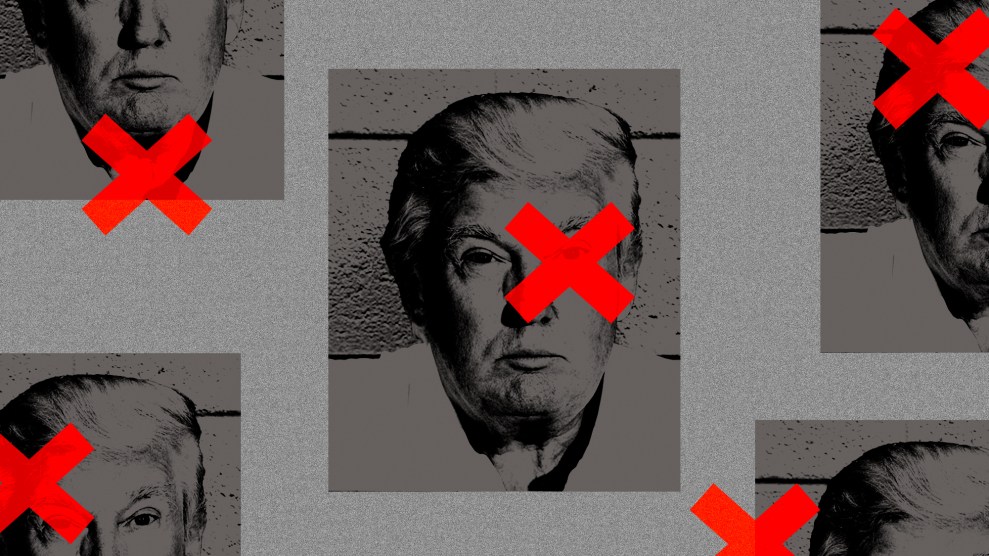
Mother Jones; Ron Elkman/Sports Imagery/ Getty
One of the glaring ironies of former president Donald Trump (and his cronies) facing accountability for their attempts to subvert the democratic process is that Republicans have been forced to acknowledge the indignities of the American criminal legal system.
After witnessing the conditions that alleged January 6 insurrectionists faced at the infamous Southeast DC jail, Rep. Marjorie Taylor Greene (R-Ga.) spoke out about inhumane conditions. As my colleague Isabela Dias reported at the time, it wasn’t until this attention from Republicans that there was much recognition of the jail’s deplorable state—even though activists had been calling attention to the poor treatment of the jail’s predominantly Black population for years. (Later, Greene would also call for Congress to “defund” the FBI after they raided Trump’s home at Mar-a-Lago; reform to abolition is a well-worn route for anti-carceral activists).
Today, we will experience another example of this kind of crossover: Donald Trump is set to turn himself into Fulton County Jail for his efforts to overturn the 2020 election and he will be issued a mug shot. This image will live in infamy and will likely energize his base. It will set social media aflame. It will keep T-shirt mavens and MAGA memorabilia entrepreneurs busy for years. And I am sure Resistance liberals will have a lot of fun. A lot of people will: The opportunity to see someone like Trump, who has so brazenly flouted the law, get even a little bit of comeuppance is sure to be cathartic. And like most things involving Trump, it will be unbelievably stupid, and really funny, and yet serious.
But like the case of the Southeast DC jail, it will also be a chance to think about a wider system. The vast majority of criminal cases do not involve a public figure like Trump or a crime as large as subverting an election. And in almost every instance: The media should not be in the business of publishing mug shots.
People’s mug shots are regularly published in the papers and online, often well before they face trial or are even convicted of a crime. These aren’t “Wanted” posters; there is no good reason to publish the picture of someone at their lowest point, after they’ve already been booked and charged. As the media critic Adam Johnson wrote, the widespread publishing of mug shots “leads to summary public shaming, firings, diminished social status—all before a trial has even taken place. In the age of SEO, it’s a form of extrajudicial punishment that largely harms the poor and people of color.”
On top of that, the existence of a person’s mug shot on the internet can follow them for years, much longer than whatever legal case they were dealing with at the time. As The Guardian reported in 2018, there is a cottage industry of websites like Mugshots.com and Arrests.com that compile mug shots and then charge people exorbitant fees to remove them from the internet.
It’s true, mug shots are public records and the First Amendment allows journalists to publish them. But is it the right thing to do? As Marjorie Taylor Greene once discovered, the American penal system is already needlessly punitive and dehumanizing. When Trump’s mug shot debuts later today, sure, let a thousand memes bloom. But it’s a decent reminder that most of the time the practice is completely unnecessary.










